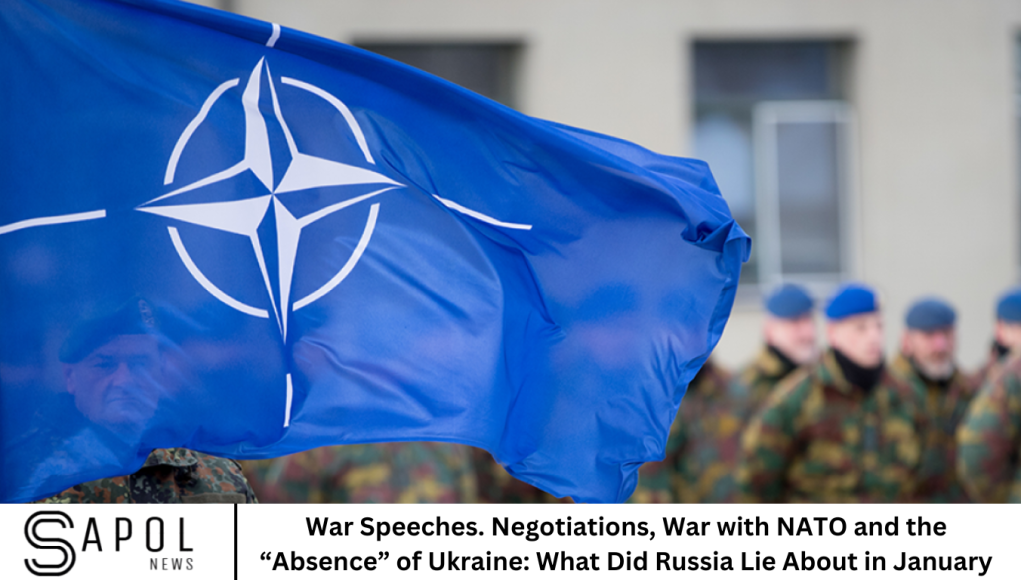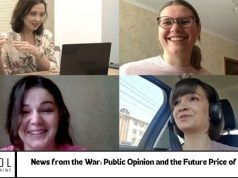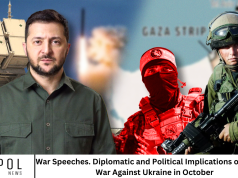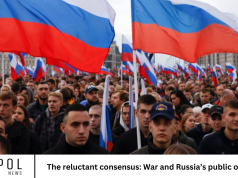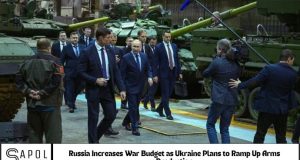Russia’s strong information operations marked the first month of 2024. The Kremlin has been using all available media platforms to drive a wedge between the people and the government of Ukrainewhile denying the existence of Ukrainian identity. At the same time, Russia pretends to be interested in negotiations to buy some time and divert the world community’s attention away from the war in Ukraine. However, the aggressive actions and intentions of Russian ultra-nationalists forced Europe to give serious consideration to the threat of direct military confrontation with the Russian Federation.
One of the main goals of Russian disinformation campaign is to cut Western aid to Ukraine. Russia tries to discredit the military-political leadership of our country and manipulates the discussions on sensitive topics to draw attention away from its war crimes, as well as undermines international support and destabilizes the situation in Ukraine.
In the following sections we will talk about the context and purpose of key Russian narratives that were disseminated in January.
Enslavement of “brotherly nation”
Russia openly declared the real purpose of the “special military operation” is territorial expansion and depopulation of Ukraine. In practical terms, there is much more to it than denazification and demilitarization. During an interview with Russian propagandists, Foreign Minister Sergey Lavrov acknowledged the destruction of “ideology of three fraternal nations”, which was allegedly caused by the actions of the Anglo-Saxons and the collapse of the USSR. This gave the Kremlin reason to believe that the war is the only way a divided nation can be reunited.
However, Russians exalt themselves to the status of a superior race even within the framework of so-called “fraternal coexistence”. The sick collective mind of political leadership of the Russian Federation considers Ukrainians part of the Russian people and there was no time in history where they existed as a separate nation.
Furthermore, the Kremlin propagandists deliberately distorted the meaning of Volodymyr Zelensky’s decree on preserving the identity of Ukrainians in Russia and presented it as Ukraine’s territorial claims. In fact, the presidential decree refers to the systematic oppression of Ukrainians residing in the territories historically populated by them within the Russian Federation. This document doesn’t put forward any territorial claims, as falsely alleged by Russian ultranationalists.
In their turn, the Russian leaders aren’t ready to abandon the policy of territorial acquisitions that they have been “implementing for the past year and a half”. Moreover, the ex-president of the Russian Federation Dmitry Medvedev expressly said that the existence of Ukraine is fatally dangerous for Ukrainians themselves because the presence of such independent state on the historical Russian territories will always serve as a ground for military action.
“Life in a large common state, which they don’t really like now, is better than death. Better than their deaths and the deaths of their loved ones. The sooner Ukrainians realize this fact, the better,” Medvedev wrote in his Telegram channel.
This manifesto of the genocide of Ukrainians openly declared by Russia is reminiscent of the policies of the Third Reich. Any Kremlin’s statements about the possibility of peaceful and harmonious coexistence of Ukrainians and Russians are aimed at manipulating public opinion, particularly in Ukraine.
For example, Russia’s UN ambassador Vasily Nebenzya expressed sympathy for the “fraternal Ukrainian people” on repeated occasions, but he pointed to “corrupt national leadership” as the reason why ordinary Ukrainians suffer. According to Nebenzya, Russia’s task is to prevent the “Kyiv junta” from annihilating their nation, while the Ukrainian language and culture are in no danger.
During the conversation with Russian servicemen, Vladimir Putin said that the Russian Federation doesn’t consider Ukraine an enemy state, but Western countries want to destroy Russia and divide it into parts. As we can see, Russia has developed a habit of portraying Ukraine as a mere pawn in its confrontation with the West.
Russia wants to disguise the true expansionist purpose of “special military operation” and worsen Ukrainians’ attitude towards Western partners by falsely calling them “beneficiaries” of prolonged hostilities. Russian authorities also try to increase the level of public dissatisfaction with the political leadership in Ukraine in hopes of destabilizing the situation in our country.
“The majority of Ukrainians are beginning to understand who the real enemy is, who has been brainwashing them for many years, who has been intimidating them, telling scare stories and lying about Russia, ‘cancelling’ our common history,” Sergey Lavrov said at the meeting of the UN Security Council.
False negotiations and denying aggressive intentions
Much of the Russian rhetoric in January centered around a negotiated settlement of military conflict. Russians have repeatedly emphasized that they are “ready to start negotiations”, but their calls for negotiations involve the accomplishment of preliminary conditions that are tantamount to the surrender of Ukraine.
Russia’s vigorous activity in this regard can be partly attributed to the regular meeting of representatives of more than 80 states and international organizations that held a round of negotiations on Ukraine’s peace formula in Davos, Switzerland. This event was a logical follow-up to last year’s meetings in Copenhagen, Jeddah and Malta.
As a result, Switzerland confirmed its intentions to organize a global peace summit on Ukraine at leaders’ level. In response, the political leadership of Russia pushed out a message that “Russia doesn’t decline negotiation”, “the discussion about peaceful settlement is impossible without the participation of Russia”, “they are trying to force us to leave Russian people at the mercy of Ukrainian Nazis”.
Such meetings and talks on peaceful settlement send the Russian officials into panic mode because they are afraid that the West will reach a consensus agreement with the countries of the Global South, which are the focal point of foreign policy pursued by the aggressor state. The spokesperson for the Russian Foreign Ministry Maria Zakharova has repeatedly voiced a hope that “our partners in Asia, Africa and Latin America are aware of the actual state of affairs and won’t allow anyone to draw them into overtly anti-Russian initiatives”.
However, Russia has no intention of conducting negotiations in good faith. At the UN Security Council meeting, Sergey Lavrov declared that Russia is interested only in those negotiations that will lead to the overthrow of the current Ukrainian government. Maria Zakharova demanded a “neutral” Ukraine and “respect for Ukrainian citizens of all nationalities”. When asked to comment on the fact that more than 140 countries condemned Russia’s invasion of Ukraine at the UN General Assembly session, Lavrov said that “it doesn’t matter to us what they voted for”.
In parallel to imitating the peaceful negotiations initiative, the Kremlin accuses Ukraine of refusing to settle the conflict by diplomatic means. Russians are trying to persuade the West into betraying Kyiv or they are simply buying some more time to regain strength. Military analysts still hold the opinion that any ceasefire will be beneficial to the Russian Federation, which is why Russians spread messages “signaling Putin’s openness to ceasefire talks” in the Western media, but the aggressor state failed to achieve the desired effect.
Quite the contrary, more and more politicians believe that Vladimir Putin will continue waging wars until he dies, and the current world events are reminiscent of the 1930s, when the West tried to appease Adolf Hitler in the lead up to World War II. In view of regular threats that are being launched by Russians, NATO countries began to consider the war with Russia as a realistic scenario.
In January, Dmitry Medvedev threatened to use nuclear weapons against the EU countries and declare war on Great Britain in the event of deployment of British troops to Ukraine. Furthermore, Russian officials consistently intimidate Finland and create an information environment that escalates tensions in relationship with the Baltic states, which have expressed their intention to deport some Russian citizens due to non-compliance with the migration law.
As we can see, Russia uses the concept of “compatriots abroad” for geopolitical confrontation with the West and exploits the narrative about fight against so-called “global Nazism” with ever increasing frequency. During the commemoration of 80th anniversary of lifting of the blockade of Leningrad, Vladimir Putin talked about oppression of Russian people in the Baltic states, glorification of Hitler’s manuals in Kyiv and Russophobia in Europe.
“We will do everything to stop and eradicate Nazism once and for all,” said the Russian dictator.
At the same time, official representatives of Russia on the international stage categorically deny the possibility of launching an attack on NATO while ignoring the statements made by Russian politicians who, in fact, sparked fear of Russian invasion. In their turn, Russian propagandists push the following narrative: they say that Western countries raised the topic of Russia’s attack on NATO out of the desire to hammer out an agreement on the allocation of funds to Ukraine.
“Western countries believe that members of the U.S. Congress can be easily intimidated into adopting a compromise decision on the allocation of 60 billion dollars for Ukraine with the help of this fairy tale, fiction story,” Sergey Lavrov said.
On January 22, the North Atlantic Alliance commenced the largest military exercises in decades under the code name “Steadfast Defender 2024”, which will simulate a Russian attack on the territory of NATO ally with the subsequent invocation of Article 5 of the NATO Treaty on collective defense obligations.
Such actions of NATO forces drew an immediate response from Russian officials who tried to present them as a provocative act. They said that the conduct of military exercises on the borders of Russia and Belarus “provokes the war of nerves”, increases the risk of military incidents and can lead to tragic consequences. Russian foreign service stated that by doing so the North Atlantic Alliance is trying to justify its existence in the eyes of millions of Europeans and Americans, as well as divert public attention from its failures in hybrid war against Russia.
Aggressive actions of the Russian Federation lead to further expansion of NATO. Last month, Turkey finally approved Sweden’s bid to join NATO which took Sweden one step closer to becoming a member of the Alliance. Once again, this triggered aggressive reaction on the Russian side: they said that NATO membership will hardly make the Swedes feel safer.
Maria Zakharova gave the following comment on the progress of Sweden’s accession to NATO: “We won’t allow anyone to weaken our security… We will take political and military-technical countermeasures to eliminate any threats to our national defense capability.”
Bloody special operations: more victims – less aid
Russia’s priority goal is to weaken the West’s determination to continue sending military aid to Ukraine. With this aim in view, the Kremlin propagandists are conducting a large-scale disinformation campaign in order to raise doubts about Ukraine’s ability to use Western weapons.
Sergey Lavrov’s official visit to the UN Security Council was preceded by the shelling of Donetsk which led to dozens of civilian casualties. On January 21, the Russians launched a missile attack on public gathering places – but based on the facts “established” by Russia, the missiles were fired on Donetsk from the direction of Avdiivka “using various types of weapons supplied by the West”.
As was to be expected, Lavrov made mention of this tragic shelling episode in his speech at the UN Security Council and referred to military support for Ukraine as a key factor preventing a peaceful settlement of the “crisis”. Meanwhile, the State Duma deputies adopted an appeal to the international organizations and national parliaments around the world in connection with “criminal attacks launched by the armed forces of Ukraine”.
However, the united press center of Security and Defense Forces of Ukraine reported that the Armed Forces of Ukraine didn’t conduct any combat operations in Donetsk area on December 21, 2023, and emphasized that Russia shall be held liable for killing Ukrainian civilians. It is typical of Putin’s regime to conduct bloody operations and have no scruples about using weapons for political purposes, as was the case in Beslam, Nord Ost, etc.
Furthermore, the Russian dictator claimed that Ukraine’s attacks on civilians are intended to demonstrate Ukrainian leadership’s “ability to respond to Russia’s actions” to the people of Ukraine and foreign “sponsors” that provide money, weapons and ammunition. “Instead of accomplishing military goals, they [Ukrainians] act in a barbarian way and attack peaceful population centers,” said the head of the Kremlin.
In their turn, Putin’s cronies keep telling lies about Russia’s “precision-strike” attacks on Ukrainian military targets and say that the Armed forces of Ukraine are to blame for placing air-defense systems near civilian buildings, leading to civilian casualties.
Russian propaganda campaign also touched upon even more sensitive topic. On January 24, the Kremlin accused Ukraine of shooting down a Russian Il-76 military plane near Belgorod with the use of western weapons, resulting in death of Ukrainian prisoners of war. A pre-planned information attack is evidenced Judging by the scale and synchronicity of distributed statements, it is safe to assume that this information attack was planned in advance. The corresponding statements were published by the State Duma, the Ministry of Foreign Affairs, the Ministry of Defense, the Kremlin and other crazy propagandists almost simultaneously.
During the press conference in New York, Sergey Lavrov accused the Kyiv regime of using terrorist methods and submitted a request for emergency UN Security Council meeting. Russian diplomat Dmitry Polyansky referred to the downing of the Il-76 plane as a terrorist attack which was carefully planned and carried out by the Ukrainian military using an anti-aircraft missile complex.
“They used either American Patriot missiles or German Iris-T missiles. If it is confirmed, the Western suppliers of missiles will be qualified as co-perpetrators of this war crime in the same way as they are involved in missile attacks on peaceful Russian cities carried out by Ukraine’s armed forces with the use of Western weapons,” said Polyansky.
Until now Russia hasn’t provided any evidence of the presence of Ukrainian war prisoners on board the downed Il-76, refused to show the dead bodies, and turned down the request for international investigation. Therefore, it can be assumed that we are dealing with pre-planned actions aiming to weaken international support for Ukraine, destabilize the situation in our country, and justify the continuation of the so-called “special military operation”.
Such actions are in complete agreement with other efforts of the Russian Federation aimed at discrediting Ukraine. Vladimir Putin put the final touch to the false perspective created by Russian disinformation campaign by making the following statement: “Based on the means of destruction that were found at the scene of crime, we can safely assume that these are anti-aircraft missiles fired from an American Patriot launching system or European (most likely French) air-defense system. This means that they (Ukrainians) are unable to use such systems in the right manner because they didn’t receive proper training abroad or they didn’t train properly by themselves.”
Frequently Asked Question
What is the context of Russia’s war speeches in January 2023?
In January 2023, Russian leaders, particularly President Vladimir Putin, delivered speeches justifying Russia’s invasion of Ukraine. They often framed the war as a fight against NATO expansion, portraying Russia as defending itself against Western aggression. These speeches are used to rally domestic support and justify the conflict.
Did Russia negotiate with Ukraine or NATO in January 2023?
No, in January 2023, there were no direct negotiations between Russia and Ukraine or with NATO. Russia rejected peace talks with Ukraine, demanding Ukraine’s demilitarization and “denazification,” while NATO’s involvement was viewed by Russia as a threat to its security. NATO members, on the other hand, continued to provide support to Ukraine.
What role did NATO play in the conflict, according to Russia?
Russia frequently claimed that NATO’s support for Ukraine—through arms supplies, training, and intelligence-sharing—escalated the conflict. Russia often depicted NATO as an active participant in the war, though NATO was not directly involved in combat, only providing defensive aid to Ukraine.
Did Russia acknowledge Ukraine’s sovereignty in its January speeches?
Russia consistently denied Ukraine’s sovereignty and independence in its rhetoric. Russian leaders argued that Ukraine was historically part of Russia and implied that its existence as a separate state was a result of Western manipulation, particularly through NATO’s influence.
What were Russia’s false claims about Ukraine’s government in January 2023?
Russia spread disinformation claiming that the Ukrainian government was controlled by neo-Nazis and that it was committing genocide against Russian-speaking populations. These claims were widely debunked by independent international observers and are seen as propaganda to justify the invasion.
How did Russia justify its military actions in Ukraine?
Russia justified its military actions as a “special military operation” aimed at protecting Russian-speaking communities in Ukraine and preventing Ukraine from joining NATO. Putin’s government claimed that Ukraine was being manipulated by the West and was a threat to Russia’s security.
What did Russia lie about in January 2023?
One key lie was that NATO was actively fighting Russia in Ukraine, which was not the case. While NATO supported Ukraine with weapons and training, no NATO forces were directly involved in combat. Additionally, Russia’s portrayal of Ukraine as a fascist state and the notion that Russian actions were liberating Ukrainians were also false and misleading narratives.
Conclusion
Russia’s statements in January 2023 were largely shaped by propaganda intended to justify its invasion of Ukraine. The rhetoric often framed NATO as a primary antagonist, falsely claiming that NATO was directly involved in the conflict and accusing Ukraine of being a puppet state under Western control. Russia’s false narratives about Ukraine’s sovereignty, government, and the war’s motivations were used to galvanize domestic support and obscure the realities of its military actions.
Despite Russia’s claims, no direct negotiations took place between Russia and Ukraine, and NATO’s role remained that of providing defensive assistance to Ukraine, not engaging in combat. The disinformation campaign surrounding Ukraine’s government, particularly the baseless accusations of neo-Nazism and genocide, further distorted the true nature of the conflict. Ultimately, these lies were part of a broader strategy to maintain internal control, discredit Ukraine, and justify the ongoing war to the Russian public and the world.

